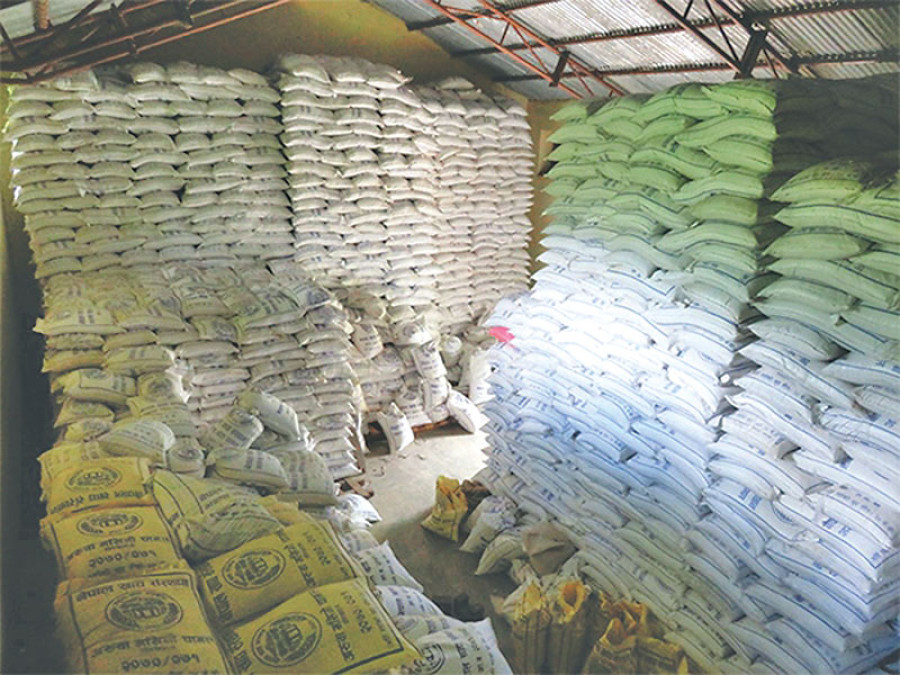Opinion
Sorry, all sold out
Two years ago, locals of Humla had to wait for up to two weeks to get on a flight to their district from Nepalgunj. There were few planes, and flying was the only way to get to roadless Humla besides an arduous trek.
Prakash Budha Magar
Two years ago, locals of Humla had to wait for up to two weeks to get on a flight to their district from Nepalgunj. There were few planes, and flying was the only way to get to roadless Humla besides an arduous trek. Today, there are 15-20 flights daily, but getting a ticket is still as difficult. This has made travel hard, and the food supply uncertain.
Locals side lined
Private airlines serving the Nepalgunj-Simikot sector are enjoying a bonanza after Indian pilgrims switched to the Simikot, Humla route to reach Manasarovar in Tibet, China following the closure of the Tatopani route north of Kathmandu due to the 2015 earthquake. Currently, Nepalgunj airport is packed with Indians, and airlines are too busy flying pilgrims from Nepal’s southern neighbour to care about domestic travellers.
Ironically, there would be only three to four flights daily between Nepalgunj and Simikot if it weren’t for Indian pilgrims. The rest would be cancelled citing bad weather. Scheduled flights operate only twice a week, and all the others are charter flights. This arrangement creates a huge space for private agencies to operate informal and unscheduled flights, allowing them to monopolise the transportation mechanism to Humla.
Moreover, if you do fly on these charter flights in the mid- and western mountainous regions, you have to go through brokers and pay extra fees. Even then, you are never sure if you will get a seat. You literally need to beg and plead with these brokers to get you a ticket. You cannot even imagine the suffering these people have to go through trying to fly home from Nepalgunj if they don’t have connections at the airport.
Supplies for the select
The effect of the monopoly on food prices and supply can be clearly seen. In recent days, talk about shortages can be heard everywhere, in the shops, neighbourhood, tea shops and markets of Simikot. Shortages of subsidised rice, which is transported by the government and distributed by the District Administrative Office (DAO), are most immediately seen. Local and national news media have reported on the food shortage in Humla, but it has had no effect. The situation worsened after an Army helicopter that used to carry rice to Bajura crashed a few months ago.
Private airlines don’t carry food because it is way down on their priority list. There is an apology notice posted on the wall of the DAO saying that there will be no supply of rice until further notice. It has been there for three to four months.
The situation demands serious scrutiny. Most of the food supply has gone to local government employees and politicians with links to high places. Locals face discrimination which has made them the most vulnerable people in Nepal with regard to securing a minimum standard of living. At the moment, there is a severe food shortage, particularly of subsidised rice. With no road access, it will be very difficult for locals to obtain rice as they depend completely on supply by air.
Moreover, locals don’t get a paisa from tourism in the area. Indian tourists pay the travel agencies and they handle everything. The travellers don’t buy any goods from the local market because they bring their own supplies or consume whatever the travel agency provides them. They only rent hotel rooms, which deprives domestic guests of accommodation. Airlines prefer flying Indian travellers because they pay more. They don’t want to carry cargo because it is less profitable. The situation became so bad that residents were forced to launch a demonstration demanding plane tickets. Subsequently, airlines agreed to carry at least four Nepali passengers on each flight, but this has not been happening.
The government has simply turned a blind eye towards the plight of the local people in Humla. Moreover, it has neglected its obligation to make essential goods and food accessible, affordable and available. Considering the suffering of locals, I am compelled to stand against the whole process of promoting tourism that systematically discriminates against locals and leads to hunger in violation of their human rights. Pilgrims may be receiving divine blessings by making the holy trip, but locals have been cursing the government for failing to make tourism beneficial for both Nepalis and Indians.
Magar is a graduate from the University of Essex, the UK




 9.89°C Kathmandu
9.89°C Kathmandu










